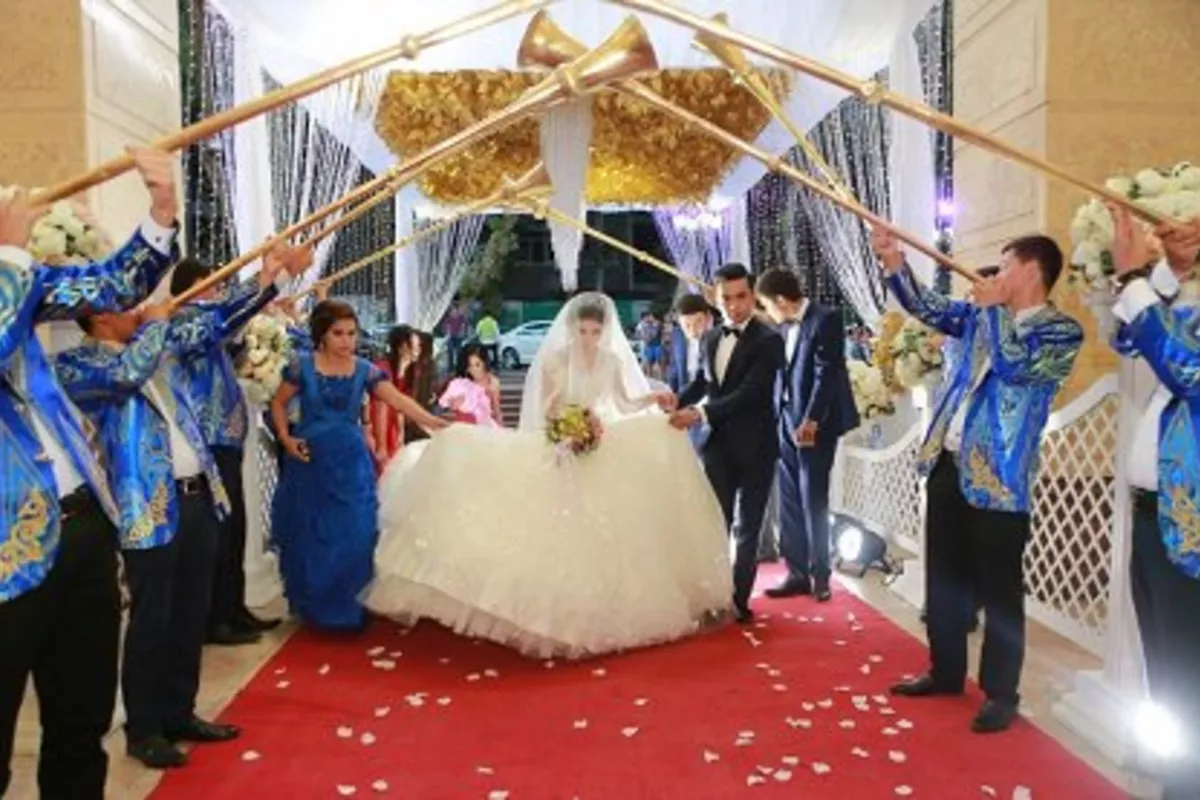
photo: Elite Tours
More than 80 per cent of Uzbek citizens pay for their weddings through loans or financial help from family members, according to a recent survey by the Yuksalish nationwide movement.
The poll, conducted between June 19 and July 3, collected responses from 1,247 people, more than 71 per cent of whom were married. It aimed to examine the financial realities behind wedding planning in Uzbekistan, The Caspian Post reports, citing Tajik media.
The results reveal a sharp mismatch between household income and wedding costs. About 81 per cent of respondents - particularly those living outside major cities - reported monthly family incomes between 5 and 12 million Uzbek soums (roughly $400 to $950). Of these, 44.43 per cent said they earn less than 5 million soums.
Despite these modest earnings, most weddings cost significantly more. Around 65 per cent of participants said they spent between 50 and 100 million soums - an amount that either matches or exceeds a full year’s income. Nearly one-third said they tried to keep wedding expenses under 30 million soums.
When it comes to funding, more than half said they rely on a mix of personal savings and family assistance. Another 25 per cent said they had taken or were planning to take out loans. Just 14 per cent could cover the costs independently.
“Weddings create a massive financial strain that can undermine the stability of young couples or their families from the start,” the report concluded.
The main driver of excessive spending, according to the study, is social pressure. Experts from Yuksalish say weddings are widely viewed as public spectacles where families feel compelled to showcase wealth and status - failure to do so can bring “uyat” (shame).
Additional factors behind lavish weddings include the wishes of the bride and groom (31.33 per cent), parental influence (29.09 per cent), in-law expectations (16.59 per cent), and extended family pressure (11.14 per cent).
The findings suggest that for many, wedding choices are less about personal preference and more about meeting societal expectations and avoiding criticism from elders and peers.
Nearly half of respondents said they felt pressured - directly or indirectly - into organizing large, expensive weddings. Over 44.5 per cent expressed regret over the amount they had spent, saying they would have preferred to invest the money in housing, education, healthcare, travel, or starting a business.
Encouragingly, most respondents supported the idea of simplifying traditional weddings. Popular suggestions included cutting the guest list, downsizing ceremonies, and dropping some pre- and post-wedding customs. Only 7.14 per cent believed wedding practices should stay the same.
Key takeaways from the Yuksalish survey:
Wedding-related debt is a serious burden for many Uzbek families.
Social expectations - not individual desire - drive most of the overspending.
A growing number of people acknowledge the harm caused by such pressure, even if they feel unable to resist it.
There is broad public support for more modest, affordable wedding traditions.
For comparison, neighboring Tajikistan passed a law in 2007 regulating weddings, funerals, and family celebrations in an effort to curb superstitions and reduce the financial pressure on families. The law has helped improve economic and social well-being by limiting excessive celebration costs.
Share on social media